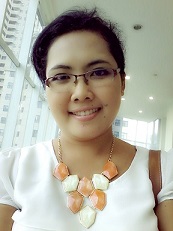CULTURE SHOCK EXPERIENCED BY DUTCH TOURISTS IN KALIBUKBUK VILLAGE
DOI:
https://doi.org/10.23887/jpbi.v5i2.12053Abstract
Penelitian ini bertujuan untuk meneliti fenonema gegar budaya yang dialami oleh turis Belanda dan bagaimana cara mereka mengatasi gegar budaya mereka di Desa Kalibukbuk. Peneliti membatasi pada penelitian gegar budaya yang berhubungan dengan komunikasi lisan dan komunikasi tidak lisan. Penelitian sekarang ini adalah sebuah studi kasus dengan desain penelitian kualitatif. Subjek dari penelitian ini adalah tiga turis Belanda yang tinggal di Desa Kalibukbuk, Kabupaten Buleleng, Bali. Peneliti mengumpulkan data dengan menggunakan wawancara yang terstruktur dan tidak struktur dari tiga turis Belanda di Desa Kalibukbuk. Instrumen utama dari penelitian ini adalah peneliti sendiri, pedoman wawancara, perekam suara dan catatan. Teori dari Pederson yang digunakan didalam menganalisis data. Hasil dari penelitian ini menunjukkan bahwa ada sepuluh fenomena gegar budaya didalam komunikasi lisan dan sepuluh didalam komunikasi tidak lisan. Dari semua gegar budaya, sebagian besar turis Belanda mengalami gegar budaya tentang transportasi. Selain itu, ada empat cara dari turis Belanda untuk mengatasi gegar budaya seperti meminta orang lokal untuk menjelaskan, mencoba untuk melakukan hal yang sama, berpikir solusi dengan cara mereka dan menghormati perbedaan budaya. Data dari observasi dan wawancara menyatakan masalah dari turis Belanda didalam meniru budaya baru di Desa Kalibukbuk, Kabupaten Buleleng, Bali.Kata Kunci : gegar budaya, komunikasi tidak lisan, komunikasi lisan
This study aimed at investigating the culture shock phenomena experienced by Dutch tourists and how the way they overcome their culture shock in Kalibukbuk village. The researcher limited on investigating the culture shock that related with verbal communication and non-verbal communication. This present study was a case study with qualitative research design. The subjects of this research were three Dutch tourists who stay in Kalibukbuk village, Buleleng regency, Bali. The researcher collected the data based on semi structure interview and semi unstructured interview from three Dutch tourists in Kalibukbuk village. The main instrument of this study was the researcher itself, interview guide, voice recorder and note. Pederson’s theory that used in analyzes the data. The result of this research shows that there were ten culture shock phenomena in verbal communication and ten in non-verbal communication. From all the culture shock, the most Dutch tourists experienced culture shock about transportation. Moreover, there were four ways of Dutch tourists to overcome the culture shock such as asked the local people to explain, tried to do the same thing, thought the solution their own and respect the difference culture. The data from observation and interview reveals the Dutch tourists’ problems in copying the new culture in Kalibukbuk village, Buleleng regency, Bali.
keyword : culture shock, non-verbal communication, verbal communication
Published
2017-10-17
Issue
Section
Articles
License
Authors who publish with the Jurnal Pendidikan Bahasa Inggris Undiksha agree to the following terms:- Authors retain copyright and grant the journal the right of first publication with the work simultaneously licensed under a Creative Commons Attribution License (CC BY-SA 4.0) that allows others to share the work with an acknowledgment of the work's authorship and initial publication in this journal
- Authors are able to enter into separate, additional contractual arrangements for the non-exclusive distribution of the journal's published version of the work (e.g., post it to an institutional repository or publish it in a book), with an acknowledgment of its initial publication in this journal.
- Authors are permitted and encouraged to post their work online (e.g., in institutional repositories or on their website) prior to and during the submission process, as it can lead to productive exchanges, as well as earlier and greater citation of published work. (See The Effect of Open Access)












